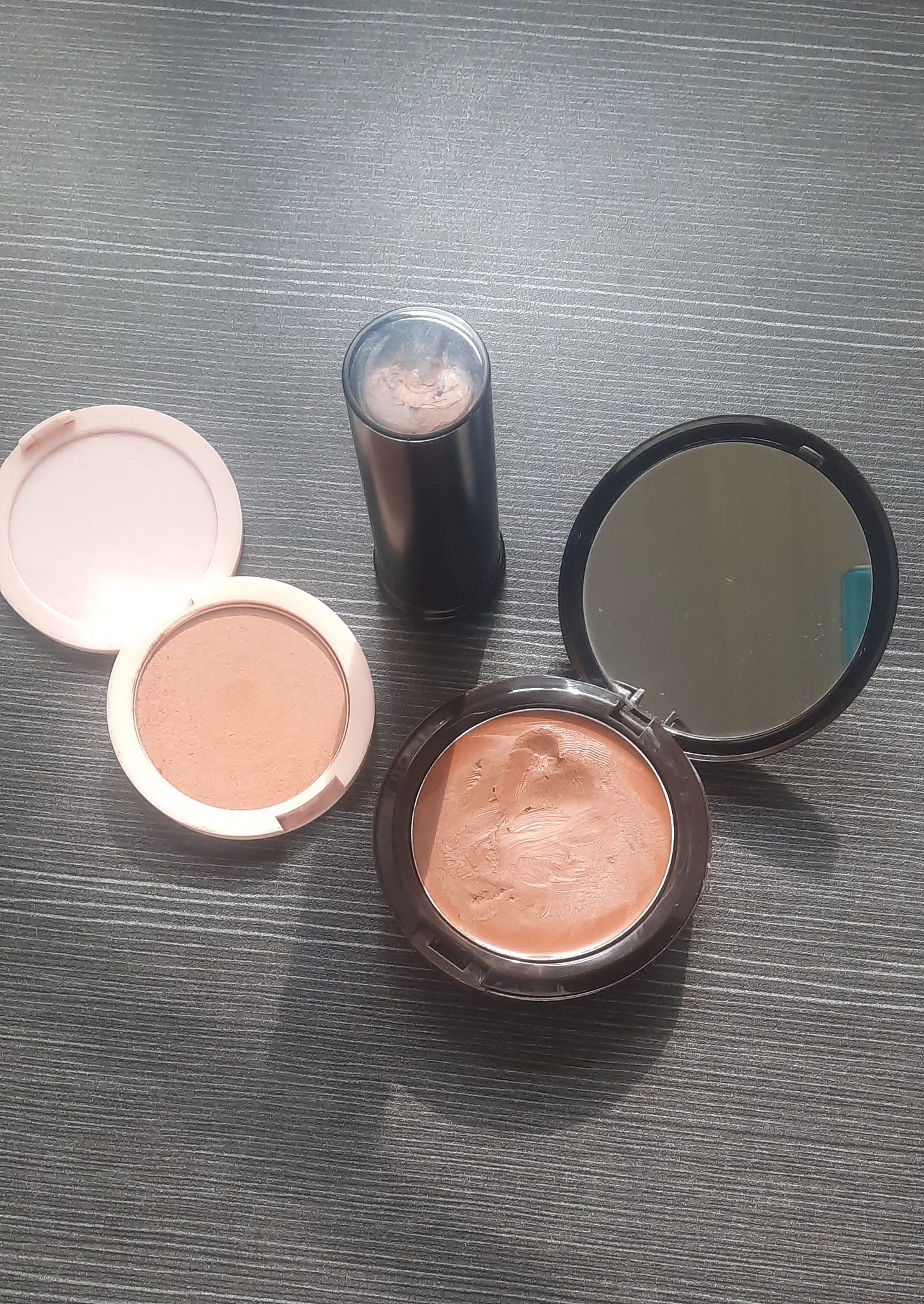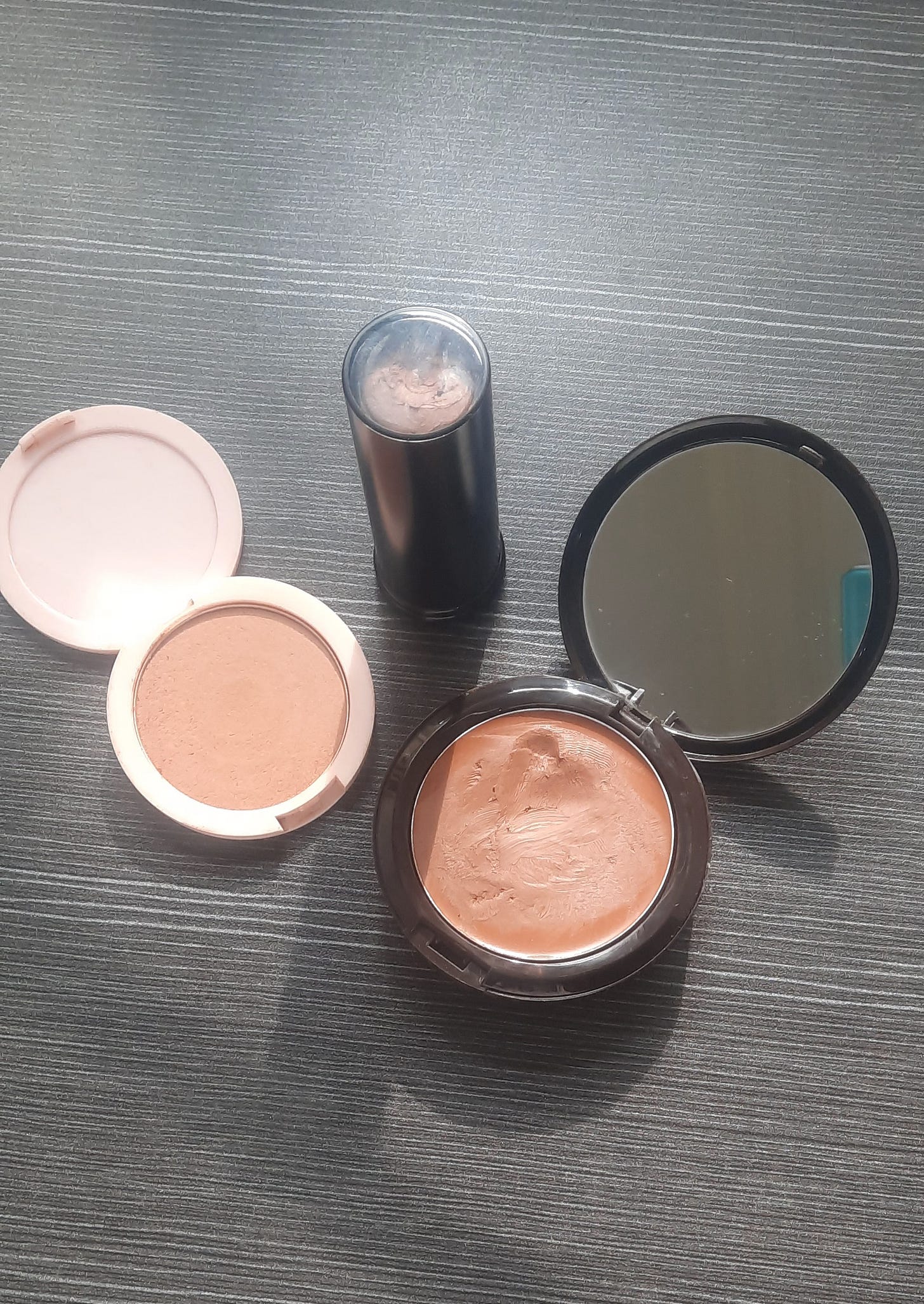Now, more than ever, it is imperative that we evaluate what we ingest as food, drugs or apply on our skin as skincare or makeup.
Researching natural and organic makeup substitutes offers a whole not so new world of possibilities that could provide a healthier, safer way to enhance our God-given beauty as women.
FACT:
Our skin is the largest organ of the body as taught in science and so absorption across the skin's surface, through its many layers will result in a wider spread and reach of whatever products are imbibed. This ultimately affects the entire body structure and organs positively or adversely.
I recall the acronym; ADME which stands for absorption, distribution, metabolism and excretion.
Most if not everything that gains entry into the body system will journey through this pathway.
Issues arise when certain products are absorbed in excess of what the body organs can adequately handle or eliminate, resulting in an imbalance or toxicity.
The body is impacted by certain factors daily, for instance the elements; direct sunlight via its rays, the air that surrounds us, wind movement and chaffing etc. These factors may not necessarily be controllable, however, the things we can handle include our chosen type or form of skincare such as creams, lotions, ointments, and applied makeup, our focus for this article.
Many of the make-up brands available can not holistically prove that their products are completely ‘safe’.
And so, it seems that with the growing disquiet comes the push for more , natural, organic, safer, cleaner and sustainable alternatives.
Natural ingredients are derived from nature & natural sources.
Organic ingredients are obtained from natural sources devoid of or as minimal kinds of external or chemical additives e.g pesticides as is possible by the company or brand's standards. Organic sources are generally considered more ecofriendly with regard to environmental impact. This may not be the case with ingredients mined from natural sources.
Another disadvantage for the natural and organic product sourcing as a whole is the fact that most materials used may not be adequately calibrated or regulated.
This poses a problem in determining how much of a product is actually being utilized by a consumer as amounts/quantities may vary from one brand, company, vendor to the other.
Some brands on the makeup market position themselves as natural or organic, SUSTAINABLE makeup brands. Essentially, they refer to themselves as 'clean' makeup brands with such product distinctions as recyclable packaging, vegan makeup offerings, cruelty free testing and the use of certified organic, natural products in their formulations.
The question remains, how clean or natural or organic are these brands?
As pharmacists, in pharmacognosy courses, we were taught about plants and their uses in drug development and production.
Cosmetic Chemists concern themselves amongst other things with the study of plants and their constituents with the goal of isolating beneficial extracts which may then be incorporated, modified or synthesized for use in so many areas of beauty & skincare, specifically makeup. These natural compounds as we know have been seen to have benefits to the skin that include UV protection, antioxidant and anti-inflammatory as well as the motherlode of them all, anti- aging properties.
Sometimes, there is an overlap, where a plant has both medicinal and cosmetic uses. To go further, a plant may have medicinal, cosmetic and toxic abilities.
In order for the benefits of these plant extracts to be maximized, the required quantities are usually immense, more than can be realistically produced or sourced given the natural resources on ground. To mitigate these deficiencies, most makeup companies resort to the use of synthesized (chemical) derivatives that mimic or mirror the benefits of their plant sources, whilst highlighting and championing the 'plant' and its cosmetic properties loudly without adequate information as to its inclusion, modification, formulation or safety profile.
In some cases, it isn't that the plant source is scarce, it is more so the preservative method or materials used to ensure that these plant extracts stay stable in the finished makeup product and on the shop shelf, hence, the word; shelf-life.
Side-eye or note.
Many toxic chemicals that should never be used or found on/in the human body are still very much utilized and ‘listed’ as constituents in many cosmetics available on the market today.
They include formaldehyde, mercury, phthalates, parabens, sulphates, PFAs to name a few. These have been linked to various health issues, notably some types of cancers.
Herein lies the ethical, medical, health and safety issues.
'All drugs are poisons but not all poisons are drugs', I recall my lecturer saying years and years ago. I may have forgotten so many things but for obvious reasons, I never forgot this saying.
When I talk about drugs here, it is synonymous with chemicals or anything that is not natural , non-natural or unnatural if you may. In making use of these synthesized compounds, it is more of 'benefits outweighing risks' than safety as the consideration to the end-user, the customer, you, me, we!
What then is the solution?
Considering the alarming rise and increase in chronic ailments and diseases like cancer, diabetes and auto-immune ailments, it is imperative that we look critically into what we imbibe daily, as food and apply on our bodies.
As women and black women, it is time we take closer looks at what makes up our 'make-up'.
All puns intended.
In the next article, we will be exploring natural, and hopefully, safer alternatives to beauty.
Makeup from an African woman's perspective.
This article is written in loving memory of my late mother; Mrs A.C Adejo.
( I haven't had the willpower or compulsion to address this issue until now, maybe in some way, I can finally do my little bit to educate on the topic of cancer and how we can collectively fight it.)






